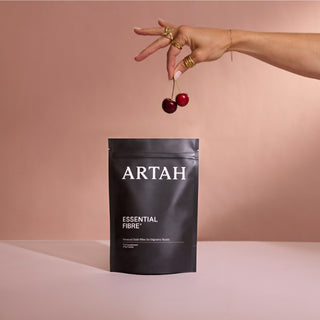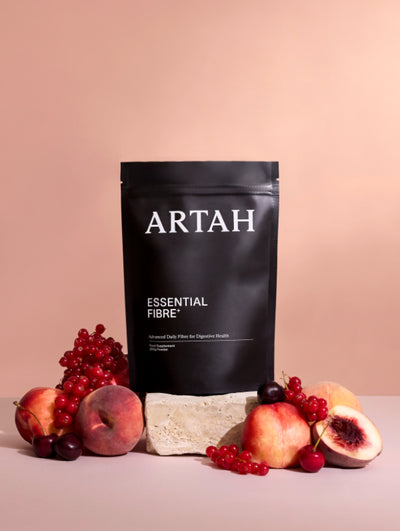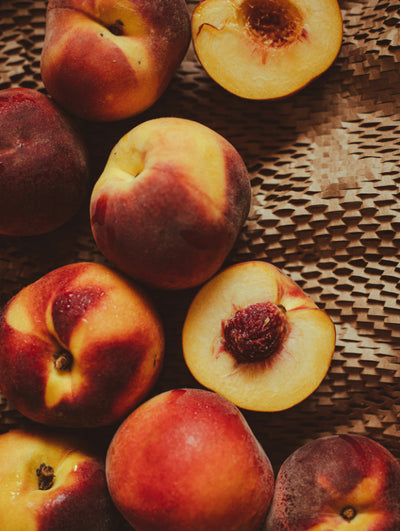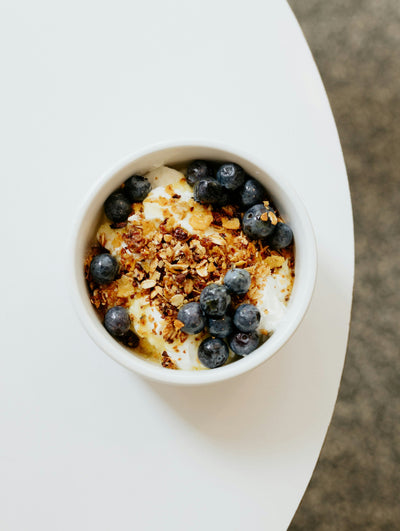Dopamine is a neurotransmitter released by the brain every time we do something pleasurable or rewarding. Evolutionarily, it was crucial to get us to repeat helpful behaviours that were key to the survival of the human race – think hunting, consuming food, and mating. This is often called ‘earned dopamine’ - which refers to the dopamine we ‘get’ through effort, discipline and motivation.
In the modern world, however, we’re surrounded by things that deliver big dopamine hits instantly, and from an evolutionary perspective, we haven’t adapted. Whether it’s from social media, junk food or online shopping, the bigger and more often the dopamine hits, the more likely we are to do these things again, and again, and again. These activities are the opposite of the sense of satisfaction we get from achieving a long-term goal, such as working hard to lift heavier weights, learning a new skill or getting to the top of a breathtaking hike. When we don’t have to work hard to achieve this dopamine and can rely on substances or the type of instant gratification we get from social media, it can erode our focus, motivation, mood and lead to addictive behaviours, like hours of ‘doom scrolling,’ over-eating on sugary, ultra-processed foods, and binge-watching TV at the expense of our sleep. This phenomenon is often referred to as ‘unearned’ dopamine, and as we now know, can be extremely problematic.
If this sounds like a cycle you’ve found yourself in - don’t worry, we’ve all been there at some time or another. Cue The Dopamine Detox, a simple, 7-day challenge to help you reset and refocus. The purpose of a Dopamine Detox is to remove stimuli that are likely to trigger ‘unearned’ dopamine, and replace them with healthy habits that help nourish a more balanced environment. Whilst it’s simple, it’s not always easy, but the results can be transformative. If you feel you have a more serious problem with any of the points mentioned below, it’s important to seek professional advice and support.
What to detox from:
-
Social Media: Try to make it as easy as possible: If possible, delete your apps or use website blockers to minimise instant notifications and simulation. You can also set a phone limit in the evening - we recommend off by 8pm, so make sure you tick all the boxes and set your alarm before you eat dinner.
-
Binge-watching TV: There’s nothing wrong with getting into a great show (#whitelotus), but if you’re feeling addicted to watching hours of TV at night at the expense of your sleep and wellbeing, it’s time to detox.
-
Video Games: Unless you’re using an educational, ‘brain training’ type of games in a moderate way, avoid video games in totality.
-
UPF: For the purpose of this week, focus on avoiding super sweet/salty products and the more obvious ‘junk’ foods, including UPF confectionery, ice cream, crisps, take-aways etc.
-
Alcohol: avoid alcohol for the duration of the 7 day challenge.
What to replace it with:
-
Reading: Reading levels are on the decline, with 35% of adults in the UK now considered as lapsed readers (1) and our overuse of social media is undeniably a factor. So, during your dopamine detox, find yourself a good book and tuck in. Try not to get frustrated if you find yourself struggling to focus; this is completely normal if you’re out of practice. Sometimes starting with a lighter or more ‘entertaining’ book can be helpful.
-
Mindfulness: Choose a mindfulness practice that suits you, and yes - apps to help this will be the exception to the rule. Try Reveri, Headspace or Calm. You can also try practices like breath work, yoga and journaling.
-
Get outside more: Instead of turning to social media first thing in the morning, if you don’t have children, try to get outside for a brisk walk. If you do have children and aren’t able to do this, try to find a practice that works for you, like contrast showers, which can help increase energy, alertness and mood.
-
Focus on healthy food: If you’re going to cut out food, have a replacement strategy in place. First, start your day with a good dose of protein and fibre to help balance blood sugar. Next, identify your high risk areas; this could be mid afternoon in the office or after dinner. If you’re keeping hyperpalatable sweet food in the house - either bin it or give it to someone to keep for the week. Remember these foods are addictive by nature, it’s not a question of will power, so removing the problem is the easiest answer. If you want to have something on hand to satisfy cravings in a more balanced way, try super dark chocolate - think 90% - or something homemade, where you can reduce the sugar and pump up the fibre. Of course, don’t forget about fresh fruit - naturally sweet, full of vitamins and minerals, and a nice dose of fibre.
-
Engage in enjoyable behaviours: whether it be a lapsed hobby, time with friends, or planning a challenge for yourself, replacing unearned with earned dopamine can help bridge the gap between where you are and where you want to be.
Disclaimer: The information presented in this article is for educational purposes only and is not intended to diagnose, prevent, or treat any medical or psychological conditions. The information is not intended as medical advice, nor should it replace the advice from a doctor or qualified healthcare professional. Please do not stop, adjust, or modify your dose of any prescribed medications without the direct supervision of your healthcare practitioner.


















































